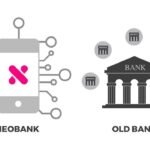In the fast-paced digital era, neobanks have emerged as a convenient and innovative way to manage your finances. These online-only banks offer an array of financial services that promise simplicity and efficiency. However, with this convenience comes a critical concern – the security of your personal and financial data. In this article, we’ll explore the world of neobank security and data privacy, providing you with insights, tips, and answers to your burning questions about keeping your money safe in the digital realm.
Table of Contents
- Introduction
- Understanding Neobanks
- The Significance of Security
- How Neobanks Secure Your Data
- Data Encryption: Your Shield
- Multi-Factor Authentication: Double the Security
- Continuous Monitoring: Staying One Step Ahead
- Data Privacy Regulations: Your Legal Safeguard
- Safe Practices for Neobank Users
- Challenges and Vulnerabilities
- Conclusion
- FAQs about Neobank Security
- What is a neobank, and how is it different from traditional banks?
- How do neobanks protect my data from hackers?
- Are neobanks subject to the same regulations as traditional banks?
- What can I do to enhance the security of my neobank account?
- What should I do if my neobank account is compromised?
2. Understanding Neobanks
Neobanks, often referred to as digital banks or online-only banks, are financial institutions that operate exclusively through digital platforms. Unlike traditional banks with physical branches, neobanks provide a wide range of banking services, such as savings accounts, checking accounts, and loans, through mobile apps or websites. The key advantage of neobanks is their user-friendly interfaces and seamless transactions, which appeal to a tech-savvy audience.
3. The Significance of Security
As you embrace the convenience of neobanks, it’s crucial to recognize the importance of security. Your financial data is sensitive and valuable, and the digital landscape can be a breeding ground for cyber threats. Ensuring the security of your neobank account is not just a matter of choice but a necessity.
Read more: Neobanks vs. Traditional Banks: Navigating the Future of Banking
4. How Neobanks Secure Your Data
Neobanks are well aware of the security concerns their users have. They employ various robust security measures to keep your data safe:
Data Encryption: Your Shield
Data transmitted between your device and the neobank’s servers is encrypted. This means that even if a hacker intercepts the data, it appears as an unreadable code. Encryption acts as an impenetrable shield around your financial transactions and personal information.
Multi-Factor Authentication: Double the Security
Neobanks implement multi-factor authentication (MFA) to ensure that you are who you claim to be. This typically involves something you know (password), something you have (your device), and something you are (biometric verification). MFA makes it incredibly difficult for unauthorized users to access your account.
Continuous Monitoring: Staying One Step Ahead
Neobanks employ advanced monitoring systems that keep a vigilant eye on your account. Any unusual activity triggers alerts, enabling them to take swift action in case of suspicious transactions. It’s like having a security guard for your finances 24/7.
5. Data Privacy Regulations: Your Legal Safeguard
Neobanks are not exempt from financial regulations. They must comply with data privacy laws, including the General Data Protection Regulation (GDPR) and other regional laws. This means they are legally bound to protect your data and can face severe consequences if they fail to do so. These regulations offer an additional layer of protection for your information.
6. Safe Practices for Neobank Users
As a responsible neobank user, there are steps you can take to enhance your account’s security:
- Strong Passwords: Use complex and unique passwords for your neobank account.
- Regular Updates: Keep your neobank app and device’s operating system up to date to patch security vulnerabilities.
- Beware of Phishing: Be cautious of emails or messages asking for your account information. Neobanks will never ask for sensitive data through email.
- Public Wi-Fi: Avoid using public Wi-Fi networks for sensitive transactions.
7. Challenges and Vulnerabilities
While neobanks are committed to ensuring the safety of your data, challenges and vulnerabilities exist. Cyber threats are constantly evolving, and neobanks need to adapt to these changes. It’s essential to stay informed about potential risks and be proactive in safeguarding your account.
8. Conclusion
In the digital age, neobanks offer a convenient and efficient way to manage your finances. However, the security of your personal and financial data should be a top priority. Neobanks take multiple measures, including data encryption, multi-factor authentication, and compliance with data privacy regulations, to protect your information. As a responsible user, following safe practices and staying informed about potential vulnerabilities will further enhance the security of your neobank account.
FAQs about Neobank Security
- What is a neobank, and how is it different from traditional banks?A neobank is a digital-only financial institution that provides banking services exclusively through online platforms, without physical branches. Unlike traditional banks, neobanks offer a streamlined and technology-driven banking experience.
- How do neobanks protect my data from hackers?Neobanks employ multiple security measures, including data encryption, multi-factor authentication, and continuous monitoring, to protect your data from hackers and unauthorized access.
- Are neobanks subject to the same regulations as traditional banks?Yes, neobanks are subject to financial regulations and data privacy laws, including the General Data Protection Regulation (GDPR) and other regional laws. They must comply with these regulations to protect your data.
- What can I do to enhance the security of my neobank account?To enhance the security of your neobank account, use strong and unique passwords, keep your app and device updated, be cautious of phishing attempts, and avoid using public Wi-Fi networks for sensitive transactions.
- What should I do if my neobank account is compromised?If you suspect that your neobank account has been compromised, contact your neobank’s customer support immediately. They will guide you through the necessary steps to secure your account and investigate any unauthorized activity.
In a world where convenience meets technology, neobanks provide an exciting way to manage your finances. With the right knowledge and precautions, you can enjoy the benefits of neobanking while keeping your data safe and secure.
Protecting Your Finances: Neobank Security and Data Privacy
In the ever-evolving landscape of financial services, neobanks have carved a niche for themselves by offering a digital-first approach to banking. As the popularity of neobanks continues to soar, it’s essential to delve deeper into the security and data privacy aspects to ensure your financial well-being remains intact.
9. Cybersecurity Partnerships: An Added Layer of Protection
Neobanks often collaborate with leading cybersecurity companies to fortify their defenses. These partnerships involve sharing threat intelligence and implementing cutting-edge security solutions. By pooling their resources, neobanks can stay ahead of cybercriminals and protect your data more effectively.
10. Transparent Communication: Building Trust
A hallmark of responsible neobanks is transparent communication with their customers. They proactively inform users about any security breaches, data leaks, or suspicious activities. This open approach fosters trust and empowers users to take necessary precautions.
Read more: Neobanks and Financial Inclusion: Unlocking a World of Possibilities
11. Regular Security Audits: Ensuring Robustness
Neobanks conduct regular security audits and vulnerability assessments. These assessments involve identifying potential weaknesses in their systems and promptly addressing them. This proactive approach is a crucial part of maintaining robust security.
12. Emergency Response Plan: Prepared for the Worst
Preparation is key to handling security incidents. Neobanks have well-defined emergency response plans that outline the steps to take in case of a data breach or cyberattack. This ensures a swift and effective response to minimize the impact on users.
13. User Education: Your Role in Security
Neobanks also play a crucial role in educating users about security best practices. They provide resources and tips on creating strong passwords, recognizing phishing attempts, and staying safe while conducting online transactions. Your awareness and proactive steps contribute significantly to the overall security of your account.
14. The Future of Neobank Security
The world of neobank security is continually evolving to combat emerging threats. As technology advances, neobanks are exploring biometric authentication methods, artificial intelligence for threat detection, and blockchain technology for enhanced data security. The future holds exciting prospects for even more robust security measures.
15. Conclusion
In the digital age, neobanks offer an array of financial services with the promise of convenience and efficiency. While their growth is undoubtedly impressive, it’s essential to remain vigilant about the security of your financial data. Neobanks employ a multi-faceted approach to protect your information, including data encryption, multi-factor authentication, compliance with data privacy regulations, cybersecurity partnerships, and continuous monitoring. As a user, adopting secure practices and staying informed about potential vulnerabilities are equally vital in safeguarding your neobank account.
In this era of rapid technological advancements, neobanks are poised to revolutionize the way we manage our finances. With the right combination of security measures and user awareness, you can navigate this digital landscape with confidence, knowing that your financial data is in capable hands.
FAQs about Neobank Security (Continued)
- Are neobanks insured against financial losses?Neobanks often partner with traditional financial institutions, which means your deposits may be insured up to a certain limit by government-backed schemes, similar to traditional banks. However, it’s essential to check the terms and conditions of your specific neobank for details.
- What happens if I lose my smartphone or access to my neobank app?Losing access to your smartphone or neobank app doesn’t mean your funds are lost. Neobanks typically provide options for account recovery, including using backup codes or contacting customer support. Always ensure you have a secure method of account recovery in place.
- Do neobanks sell my data to third parties?Reputable neobanks prioritize data privacy and typically do not sell your data to third parties. However, it’s essential to review their privacy policies to understand how your data is used and shared.
- Can I use a neobank as my primary bank?Many people use neobanks as their primary banking institutions due to their convenience and low fees. However, it’s advisable to evaluate your specific financial needs and the services offered by the neobank to determine if it meets all your requirements.
- How do neobanks make money if they offer free services?Neobanks often generate revenue through various means, including interchange fees from card transactions, interest on loans, and premium services. While some services are free, they have a sustainable business model that supports their operations.
Neobanks are continually evolving to meet the changing needs of their users while maintaining robust security and data privacy standards. As you embrace the world of neobanking, staying informed and proactive will be your best allies in ensuring a secure and efficient financial experience.
Image Source: The Economic Times




